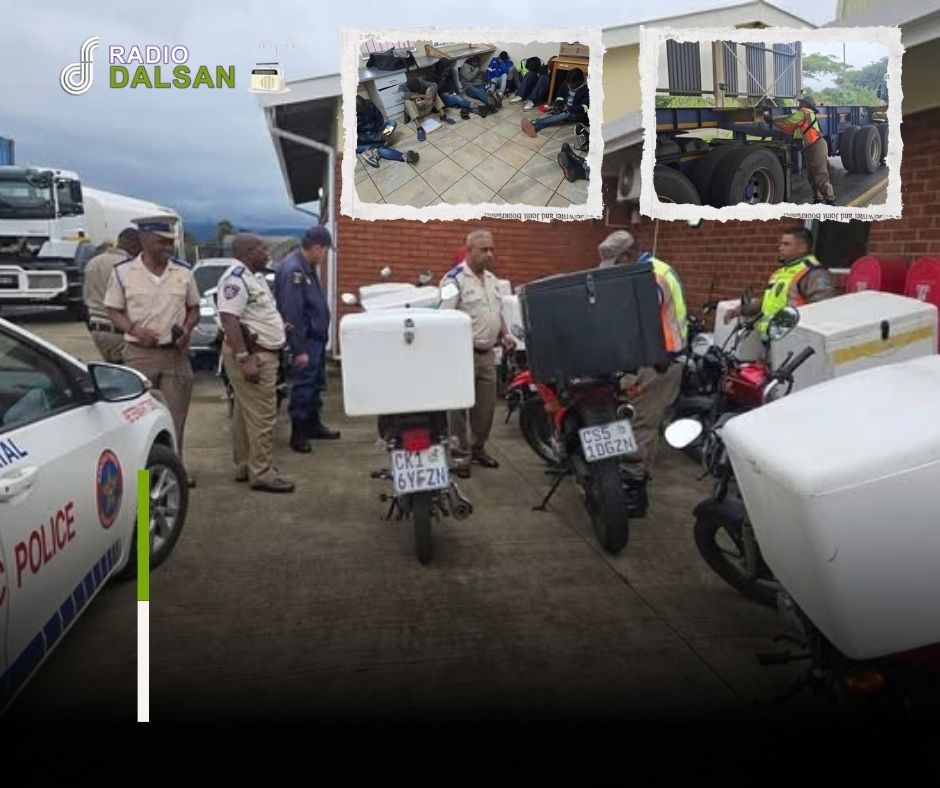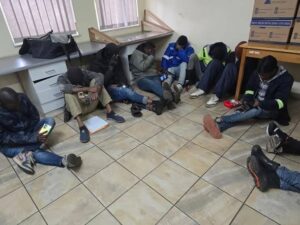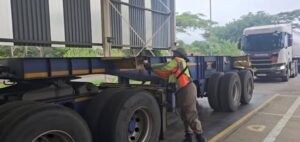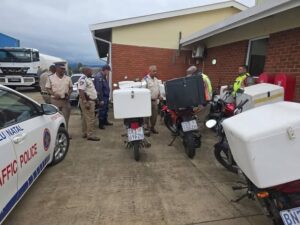Irregular migrants working as motorcycle and truck drivers have been arrested in parts of the KwaZulu-Natal province

KwaZulu-Natal MEC for Transport and Human Settlements, Siboniso Duma, has declared war on rogue elements in the province’s trucking industry, following a far-reaching enforcement operation that laid bare a web of exploitation, corruption, and unsafe practices along South Africa’s busiest freight routes.
Duma spent the weekend with other law enforcement agencies at Pietermaritzburg's Mkhondeni Weighbridge, where his department's #NenzaniLaEzweni (meaning "What Are You Doing in This World?") campaign intensified its push to restore order on KZN’s roads.
The operation saw 98 trucks stopped, 47 drivers interviewed, and several arrests made, including one of a Zimbabwean truck driver found driving under the influence of alcohol.
“Undoubtedly, he was on his way to cause a horrific accident that could have resulted in fatalities,” Duma said, adding that the operation’s purpose was to “clean our road networks as part of creating a safe and secure KwaZulu-Natal for citizens.”
Authorities also arrested five foreign nationals for being in the country illegally or for presenting fraudulent documents, while another Zimbabwean driver was charged for transporting European tourists without a valid permit.
A bus from Zimbabwe carrying foreign nationals was also impounded for inspection by a multi-agency team that included the RTI, SAPS Dog Unit, and Home Affairs Immigration officials.
A KwaZulu-Natal Road Traffic Inspectorate (RTI) officer and some of the undocumented foreign truck drivers who were arrested at a multi-displinary road traffic blitz over the weekend in Mkhondeni, Pietermaritzburg KwaZulu-Natal Department of Transportation, image Industry in Crisis: Drivers Speak of Exploitation and Fear
Behind the arrests, however, lies a deeper crisis within the province’s freight sector. Interviews with truck drivers, conducted during and after the operation, painted a grim picture of exploitation and labour violations that Duma described as “human rights abuses in broad daylight.”
“We have uncovered exploitative practices, financial fraud and human rights violations involving certain players in the logistics and freight industry,” he said.
“They are behaving with impunity and must be held accountable for turning our road networks into killing fields.”
The MEC says that drivers reported that: -They have no written contracts or employment protection.
-Local drivers are being replaced by undocumented foreign nationals willing to work for less.
-Officers of the law are paid to get around inspections. -No payslips or overtime payments are issued, despite long hours on the road.
-Many work without rest days or leave, are paid per load, and are not compensated for weekends or public holidays.
Government Strikes Back
The crackdown is part of a larger provincial effort to reduce the number of fatal truck accidents, particularly along the N3 corridor, where dozens of people have died in heavy-duty vehicle accidents this year alone. Duma confirmed that his department has now mandated the RTI to arrest company owners implicated in criminal activities, not just their employees.
“Honest players in the logistics and freight industry must stand up and join hands with us to protect the sector from being destroyed by rogue elements,” he said.
The province’s multi-agency task force includes the SAPS K9 Dog Unit and Highway Patrol, Department of Labour and Employment, Cross-Border Road Transport Agency, Umsunduzi Traffic, N3 Toll Concession and ADTF ASA (Truck Drivers’ Union), a partnership Duma described as “enduring and unbreakable.”
A Road to Reform
The move, which combines road policing, labor justice, and immigration control, marks a turning point in the province's transportation safety strategy. While the MEC’s tough stance has won praise from safety advocates, industry insiders say long-term reform will require tightening the employment laws, licensing regulations, and cross-border compliance mechanisms that allow exploitation to persist.



